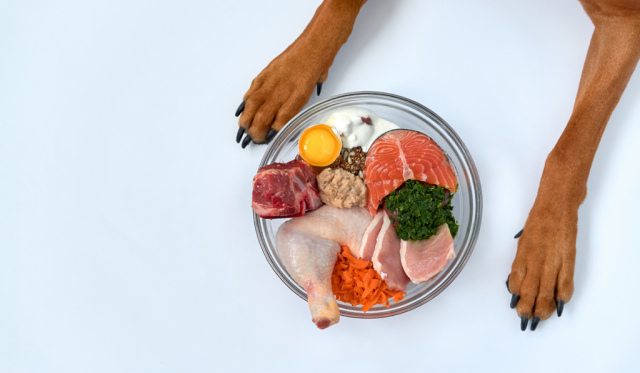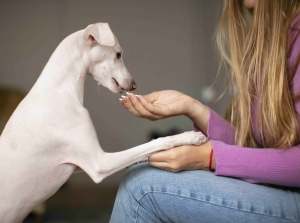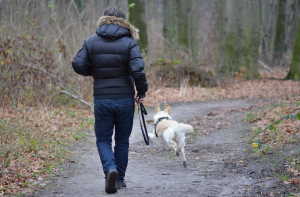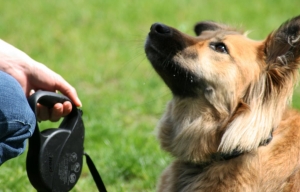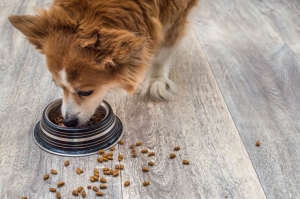Anyone who has ever eaten with a dog nearby knows the familiar feeling of eyes begging for a bite. While it is natural to want to share, the decision is not always simple. Some foods that are healthy for humans can be dangerous for dogs, while others can be perfectly safe and even beneficial. Knowing the difference allows you to treat your dog with confidence, supporting their health rather than risking it.
This guide brings clarity by explaining how dogs digest food differently, highlighting the healthiest human foods they can enjoy, pointing out which ones are harmful, and offering practical tips for feeding safely. Alongside fresh options from your own kitchen, you can also explore healthy dog treats from trusted brands such as Happy Staffy, which provide safe and nutritious alternatives your pet will love. By the end, you will know exactly how to make thoughtful choices at mealtime and snack time.
Key Takeaways:
-
Dogs are omnivores but process food differently, so not all human foods are safe.
-
Lean meats, eggs, pumpkin, carrots, apples, bananas, and oatmeal provide real nutritional benefits.
-
Always cook foods plainly and remove bones, seeds, and seasoning before serving.
-
Toxic foods include chocolate, grapes, raisins, onions, garlic, macadamia nuts, alcohol, and xylitol.
-
Human foods should remain occasional treats, making up no more than ten percent of daily calories.
Understanding Canine Digestion and Food Safety
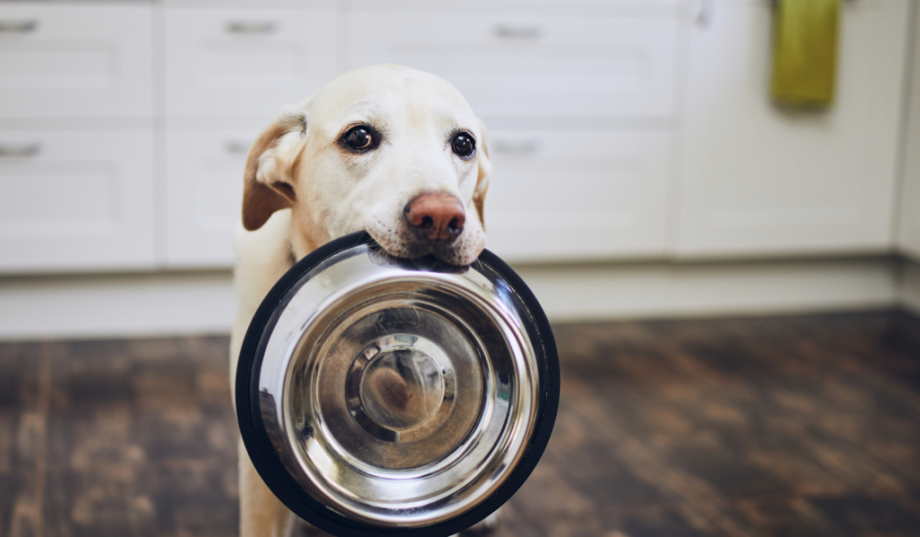
Dogs are omnivores, which means they can thrive on both animal proteins and plant based foods. That flexibility, however, comes with limitations. Unlike humans, dogs cannot handle heavy seasonings, rich oils, or certain compounds found in fruits, vegetables, and grains. Their digestive systems are less adaptable to variety and more sensitive to toxic substances.
Food allergies in dogs are also more common than many owners realize. Some dogs develop reactions to proteins such as beef, chicken, or eggs, while others have difficulty with dairy or grains. Signs of intolerance can include persistent itching, ear infections, digestive upset, or chronic gas.
Safety starts with preparation. Human foods offered to dogs should always be cooked plainly without salt, butter, or spices. Bones, pits, seeds, and tough skins should be removed to avoid choking or internal injury. Even safe foods should be given in moderation. Too much of any one ingredient can upset the stomach or create imbalances over time.
Top 10 Healthy Human Foods That Dogs Can Safely Enjoy
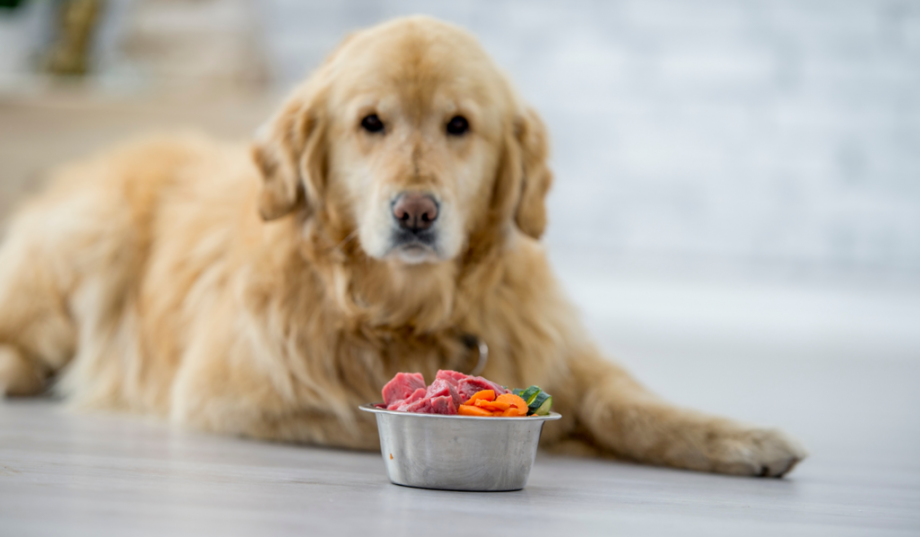
1. Cooked, Unseasoned Chicken, Turkey, or Beef
Lean meats are among the best protein sources for dogs because they provide the amino acids needed for muscle repair, immune support, and healthy energy levels. Chicken, turkey, and beef are widely available, making them easy to add as toppers or occasional treats. Always serve the meat fully cooked and completely plain. Remove bones to avoid choking or splintering hazards, and trim away fat to reduce the risk of pancreatitis. Offer in small, controlled portions to supplement rather than replace balanced dog food.
2. Cooked, Unseasoned Fish
Fish such as salmon, sardines, and whitefish are rich in omega three fatty acids, which reduce inflammation, strengthen joints, and improve coat shine. These fatty acids also play an important role in cognitive function, making fish especially beneficial for senior dogs. Cook fish thoroughly to kill parasites and remove all bones before serving. Avoid high mercury fish like tuna and limit servings to once or twice a week.
3. Cooked, Unseasoned Eggs
Eggs are one of the most nutrient dense foods you can share with your dog. They supply high quality protein, healthy fats, and important vitamins such as selenium, riboflavin, and vitamin D. Hard boiled or scrambled eggs without butter or oil are easiest to digest. Eggs can also provide a boost for dogs recovering from illness or those needing extra calories. Since some dogs are allergic to eggs, introduce them carefully and watch for any signs of itching or digestive upset.
4. Cooked Pumpkin
Pumpkin is a gentle food that supports digestive health in both directions. Its soluble fiber helps regulate bowel movements, easing constipation while also firming up loose stools. In addition to fiber, pumpkin contains beta carotene, which the body converts to vitamin A for vision, skin, and immune system support. Always use plain cooked pumpkin or canned pumpkin without added sugar or spices. Avoid pumpkin pie filling, which contains ingredients that can be harmful to dogs.
5. Cooked Green Beans
Green beans are an ideal low calorie snack that can be given generously without contributing to weight gain. They provide vitamin C, vitamin K, and manganese, along with fiber that supports digestion. Many veterinarians recommend green beans as part of weight management programs since they help dogs feel full. Serve them lightly steamed or boiled without salt or butter. Frozen green beans can also make a refreshing snack on hot days.
6. Cooked Carrots
Carrots are naturally sweet and rich in vitamin A, which is vital for vision and immune system health. Raw carrots can act as a crunchy chew that scrapes plaque from teeth, but cooking them lightly makes nutrients easier to absorb and reduces choking risk. Carrots also provide antioxidants that fight cellular damage and fiber that promotes digestive balance. For small dogs, cut carrots into thin slices or soft sticks for safe chewing.
7. Cooked Spinach
Spinach contains an impressive range of vitamins including A, C, and K, as well as iron, calcium, and antioxidants that protect against cellular damage. Although highly nutritious, spinach should be served in moderation because it contains oxalates that can interfere with calcium absorption. Cooking spinach helps reduce oxalate levels and makes it easier to digest. Offer it as a small topper mixed into regular food rather than a large side dish.
8. Apples in Slices
Apples bring a refreshing crunch and are packed with vitamin C, fiber, and natural antioxidants. They are particularly good for dental health, as their crisp texture helps reduce plaque buildup. Always remove seeds and the core before serving, since apple seeds contain trace amounts of cyanide and cores can cause choking. Apple slices can be offered raw as a cool treat or frozen for teething puppies. Limit quantity to prevent stomach upset from natural sugars.
9. Bananas in Moderation
Bananas are an excellent source of potassium, magnesium, and vitamin B6, all of which support healthy nerve and muscle function. Their soft texture makes them easy to mash into food or serve as bite sized pieces for older dogs with dental issues. Because bananas are high in sugar, they should be reserved for special occasions or training rewards. A few small slices are enough to give your dog a nutrient boost without adding unnecessary calories.
10. Cooked Oatmeal
Plain oatmeal is one of the best grains for dogs with sensitive stomachs. Its soluble fiber soothes digestion and can help regulate cholesterol and blood sugar levels. Oatmeal also provides vitamin B, zinc, and omega six fatty acids that keep the skin hydrated and the coat shiny. Prepare oatmeal with water rather than milk, since many dogs cannot digest lactose. Serve cooled oatmeal in small portions mixed with regular dog food.
Human Foods That Are Unsafe for Dogs
Not every item on your plate is safe to share with your dog. Some foods that seem harmless can cause severe reactions and long term damage. Chocolate, coffee, and tea contain stimulants that interfere with the heart and nervous system. Grapes and raisins may lead to kidney failure even in very small amounts. Onions, garlic, and chives harm red blood cells and can trigger anemia if eaten regularly or in large doses.
To make things clearer, here are some of the most dangerous foods to avoid:
-
Macadamia nuts and other fatty nuts can cause weakness, tremors, and stomach distress.
-
Xylitol, an artificial sweetener found in gum, candy, and baked goods, may cause a rapid and dangerous drop in blood sugar.
-
Alcohol, even in tiny amounts, can depress the nervous system and cause poisoning.
Fatty table scraps and heavily seasoned leftovers are also risky because they irritate digestion and may contribute to pancreatitis. Being aware of these dangers ensures that your generosity never puts your dog in harm's way.
Practical Feeding Tips for Human Foods
Introducing human foods into your dog's diet should always be done carefully. Start with one new food at a time so you can easily notice any change in digestion, energy levels, or skin condition. Serving small amounts allows you to gauge tolerance before making it a regular part of their routine. Keeping portions modest ensures that treats enhance rather than disrupt your dog's diet.
It is also essential to remember that human food should only complement balanced dog food, not replace it. Experts recommend that extras make up no more than ten percent of daily calories. Serve everything plain, avoiding oils, butter, sauces, or spices. Always observe your dog closely. If they develop stomach upset, itching, or unusual behaviors, stop immediately and seek veterinary advice.
Supporting Your Dog's Health Beyond Food
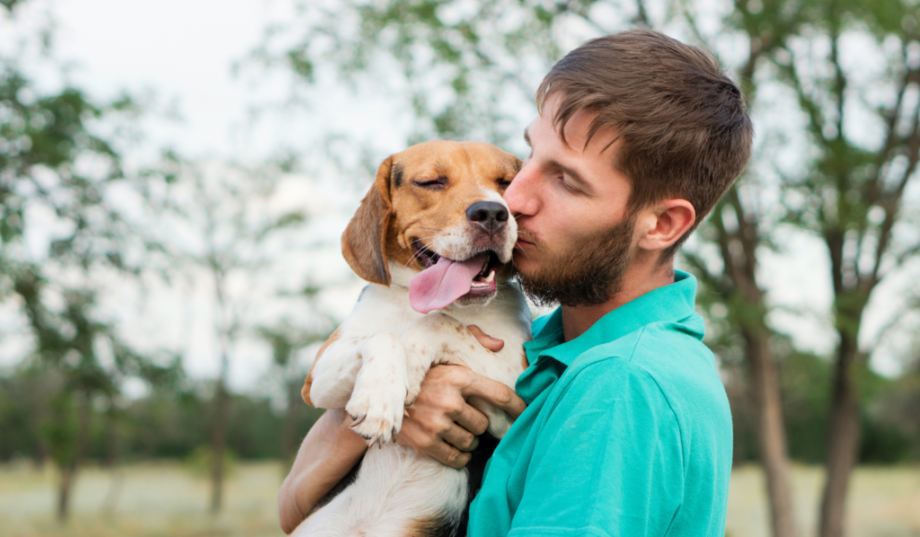
While nutrition is a cornerstone of wellness, it is only one part of the bigger picture. Dogs also need routine veterinary visits to track growth, catch problems early, and maintain vaccinations. Preventive measures such as parasite control and dental care ensure that your pet remains healthy from the inside out. Together, these efforts create a strong foundation for a long and active life.
To make these responsibilities easier, many clinics now offer wellness plans that package essential services into manageable monthly costs. This approach allows owners to stay consistent with care while avoiding large unexpected bills. When paired with a balanced diet and safe treats, these preventive steps provide dogs with the best chance at a vibrant, healthy future.
Frequently Asked Questions
What human foods can dogs eat every day
Dogs can safely eat plain meats, cooked vegetables such as carrots and green beans, and small servings of fruit like apples. These should be added to their diet as treats, not as full meals.
What human foods are especially beneficial for dogs
Pumpkin, eggs, and fish provide more than just calories. They offer digestive support, protein for muscle growth, and omega three fatty acids that improve skin and joint health.
What foods should puppies avoid
Puppies should not be given fatty foods, bones, or any toxic ingredients such as chocolate, grapes, or garlic. Their digestive systems are delicate, so always consult a veterinarian before adding extras.
Which human foods are universally harmful to dogs
Chocolate, grapes, raisins, onions, garlic, macadamia nuts, alcohol, caffeine, and xylitol are highly toxic and should never be given under any circumstances.
What is the healthiest overall diet for dogs
A diet that combines high quality dog food with occasional safe human foods is best. Commercial dog food provides complete nutrition, while fresh foods add variety, fiber, and extra vitamins when offered in moderation.
